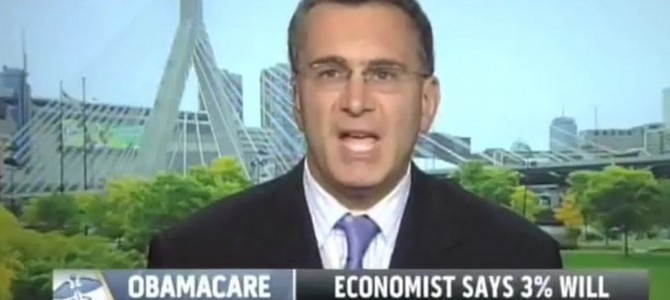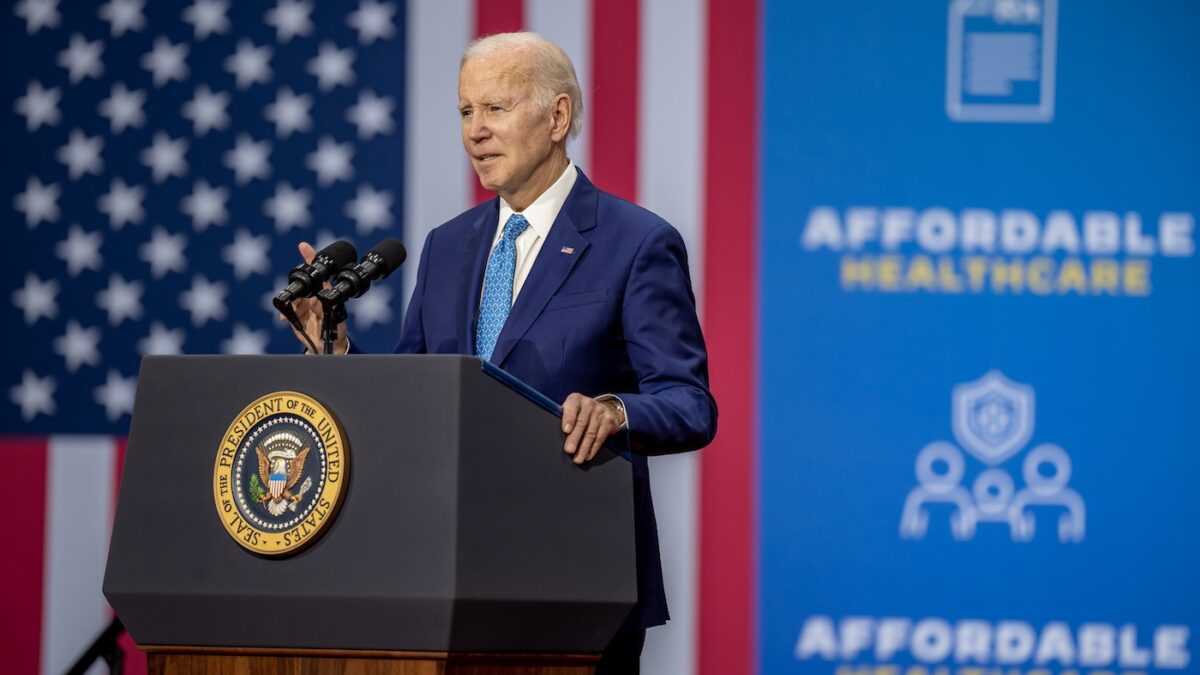Health economist Jonathan Gruber has recently been quoted and depicted on video telling several truths about supporters’ intent to deceive the American people about Obamacare when it passed. What hasn’t been widely covered is Gruber’s testimony to the Senate Finance Committee before the Affordable Care Act passed.
There were several hearings on health reform on the Hill before ACA passed. Witnesses are brought in to aid in providing insight to the issue at hand. Gruber did not detail his work with the White House before he testified, prompting this floor statement from Sen. Charles Grassley.
I thought [Gruber] was an unbiased expert, but was later disappointed to hear that he had been paid over $400,000 by the Administration to help advance the president’s health care proposals. At the very least, he should have been straightforward with the Committee and disclosed this financial interest.
In addition to his testimony before the Finance Committee, Dr. Gruber testified in front of the HELP Committee and was also a high-profile supporter of the Administration’s health care reform effort in the media. In only a handful of his many articles on health care reform did he disclose his financial conflict of interest…
When an academic leader comes before Congress to advocate a position, Congress should have confidence that the witness is both independent and objective and not being paid to assist the Administration, or any other organization, in its efforts.
Equally troubling is the Department of Health and Human Services, which has been unresponsive to efforts by Senator Enzi and me to learn more about their practice of hiring consultants to advance the President’s agenda.
The fact that this expert was paid by the Administration—and hid that fact from Congress—really taints everything this particular advocate told the committees. If Congress had been aware of his arrangement with HHS prior to his testimony, we would have had the opportunity to clarify that relationship with Dr. Gruber before considering his opinions and ideas. Unfortunately, when we learn about it after the fact, it completely discredits the information he presented.
Unlike the House, Senate committees did not require witnesses to disclose potential conflicts of interest. Grassley proposes changing the Senate rules to mirror those in the House.
While the PDF for Gruber’s testimony isn’t available directly like those of other witnesses, his testimony begins in the video linked at the 1.16 mark. Highlights include statements that reaffirm ACA’s cost savings potential while reaffirming there would be no negative impacts on premiums and small business. The witness prior to him, Karen Bender, who does disclose her affiliation with Olivery Whyman, highlights many of the likely causes of premium increases for younger and healthier individuals that we have seen in reality. Meanwhile, Gruber highlights premium decreases that we’ve never seen: “And prices fall because individuals are brought in to buy health insurance both healthy and sick and so insurers can be sure that they’ll get a good distribution of risk when they offer that insurance.
Or this from the raw transcript:
I also want to spend a minute debunking the claims that reform will hurt small businesses. For example, some people have claimed that insurance reform will raise costs. That ignores the fact that there’s going to be an individual mandate that’s going to help improve the risk of health pools and lower health care costs. Some have claimed the benefit mandates will raise the costs of health insurance, in particular the level of minimum credible coverage that’s put in these bills. The level of coverage that’s in the Senate Finance Committee—for example, that’s the minimum—is less generous than only about 10 percent of firms offer today. So very few firms will be forced to buy up.
Some have claimed that excise taxes will raise the costs faced by small businesses. But here the CBO has spoken. And CBO has reported that these excise fees in the Senate Finance bill will raise premiums by less than 1 percent. So that’s really a red herring.
And then finally, we can—there’s lots of studies that have talked about the effect on premiums. But we have authoritative evidence from the Congressional Budget Office. They’ve not spoken on small groups. We’re still waiting for that. But they have spoken on the premium effect for the individual/non-group market. And unlike reports by Oliver Wyman and others which suggest that premiums in the non-group market will go up by 50 percent or more.
The Congressional Budget Office estimates that under these exchanges premium in the non-group market will fall by 30 percent by 2016 because of reform. So while we don’t have numbers for small businesses, it’s clear where it’s going for individuals.
This is certainly a different story from the one Gruber told a college audience on video around the same time in 2010.
‘Barack Obama’s not a stupid man, okay?’ Gruber said in his remarks at the College of the Holy Cross on March 11, 2010. ‘He knew when he was running for president that quite frankly the American public doesn’t actually care that much about the uninsured….What the American public cares about is costs. And that’s why even though the bill that they made is 90% health insurance coverage and 10% about cost control, all you ever hear people talk about is cost control. How it’s going to lower the cost of health care, that’s all they talk about. Why? Because that’s what people want to hear about because a majority of Americans care about health care costs.’
Gruber said the measures in the bill that attempt to lower costs constitute a ‘spaghetti approach’ — throwing everything against the wall to see what sticks. And while preferable to the status quo, Gruber said he could offer no guarantee that any of the measures would work.
The majority of Gruber’s testimony to the Senate was on how the Affordable Care Act would reduce costs. At no time did that testimony disclose his direct association with the White House. Around the same time, he was telling non-congressional audiences the substance of his congressional testimony wasn’t true. One wonders what changed his perspective so dramatically.
Despite the best efforts by former White House staffers like David Axelrod to dismiss Gruber, it’s impossible to shake Gruber’s direct connection to the White House throughout the ACA’s development, especially when the president himself publicly praised Gruber as early as 2006, later contracted with him for over $400,000 to help develop ACA, and remained silent while Gruber provided what was presented as unbiased testimony to the Senate prior to the passage of the law.
The deceptions with Obamacare are numerous, but still can be summarized best by the White House having to admit that “if you like your plan, you can keep it” was an impossible promise to keep. Given the law’s 37 percent approval rating according to Gallup, it’s clear that despite the attempts to deceive Americans, most aren’t that stupid and understand this law is failing to keep its promises. After all, we aren’t the ones who couldn’t even get a website started in three years.









